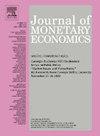Shaping inequality and intergenerational persistence of poverty: Free college or better schools?
IF 4.3
2区 经济学
Q1 BUSINESS, FINANCE
引用次数: 0
Abstract
We evaluate the aggregate, distributional and welfare consequences of alternative government education policies to encourage college completion, such as making college free and improving funding for public schooling. To do so, we construct a general equilibrium overlapping generations model with intergenerational linkages, a higher education choice as well as a multi-stage human capital production process during childhood and adolescence with parental and government schooling investments. The model features rich cross-sectional heterogeneity, distinguishes between single and married parents, and is disciplined by US household survey data on income, wealth, education and time use. Studying the transitions induced by unexpected policy reforms we show that the “free college” and the “better schools” reform generate significant welfare gains, which take time to materialize and are lower in general than in partial equilibrium. It is optimal to combine both reforms: tuition subsidies make college affordable even for children from poorer parental backgrounds and better schools increase human capital thereby reducing dropout risk.
塑造不平等和贫困的代际持续:免费大学还是更好的学校?
我们评估了鼓励完成大学学业的其他政府教育政策的总体、分配和福利后果,例如使大学免费和改善公立学校的资金。为此,我们构建了一个具有代际联系、高等教育选择以及童年和青春期多阶段人力资本生产过程的一般均衡重叠代模型,其中包括父母和政府的教育投资。该模型具有丰富的横断面异质性,区分了单身和已婚父母,并受到美国家庭收入、财富、教育和时间利用方面的调查数据的约束。通过研究意外政策改革引发的转变,我们发现“免费大学”和“更好的学校”改革产生了显著的福利收益,这些收益需要时间才能实现,而且总体上低于部分均衡。将这两项改革结合起来是最理想的:学费补贴使父母背景较差的孩子也能上得起大学;更好的学校增加人力资本,从而降低辍学风险。
本文章由计算机程序翻译,如有差异,请以英文原文为准。
求助全文
约1分钟内获得全文
求助全文
来源期刊

Journal of Monetary Economics
Multiple-
CiteScore
7.20
自引率
4.90%
发文量
90
审稿时长
74 days
期刊介绍:
The profession has witnessed over the past twenty years a remarkable expansion of research activities bearing on problems in the broader field of monetary economics. The strong interest in monetary analysis has been increasingly matched in recent years by the growing attention to the working and structure of financial institutions. The role of various institutional arrangements, the consequences of specific changes in banking structure and the welfare aspects of structural policies have attracted an increasing interest in the profession. There has also been a growing attention to the operation of credit markets and to various aspects in the behavior of rates of return on assets. The Journal of Monetary Economics provides a specialized forum for the publication of this research.
 求助内容:
求助内容: 应助结果提醒方式:
应助结果提醒方式:


